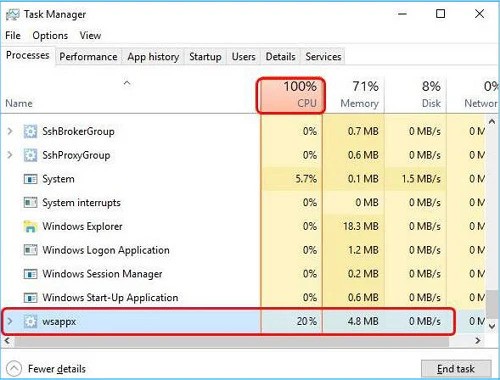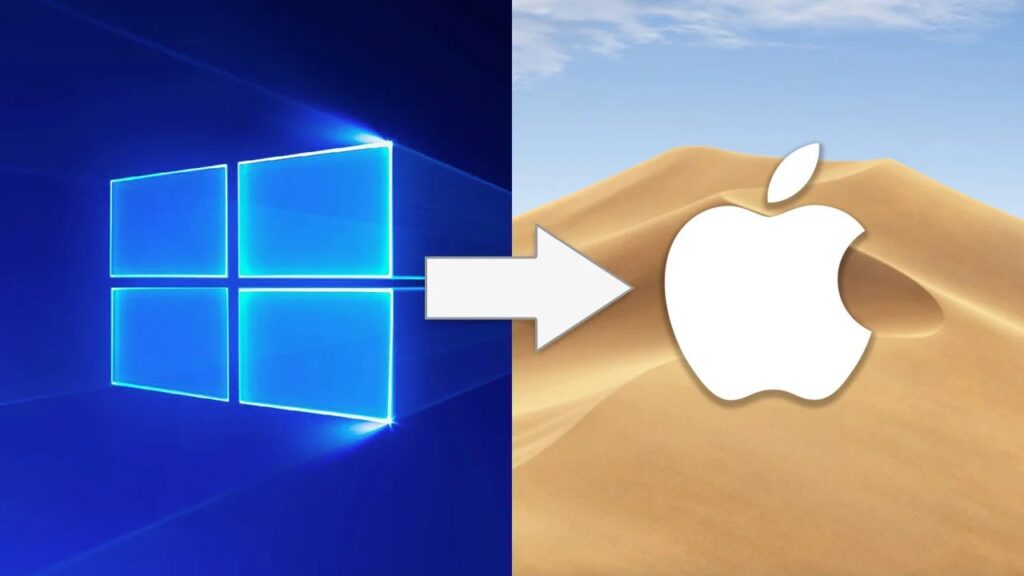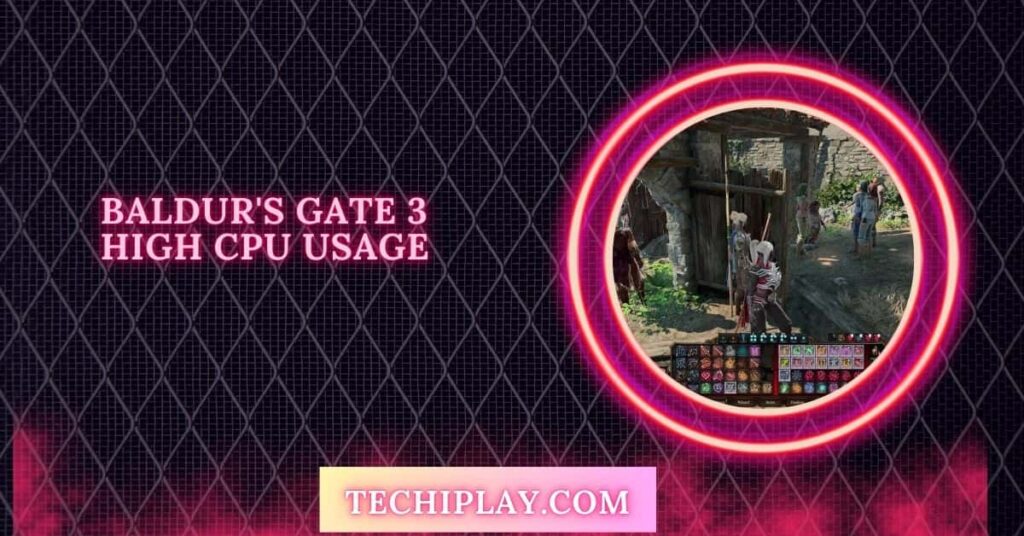Baldur’s Gate 3 has captured the hearts of gamers with its stunning graphics and immersive gameplay.
Baldur’s Gate 3 often shows high CPU usage, typically 60-80%, and can spike to 100%. This increased usage can affect gameplay performance, especially during movement. Optimizing settings can reduce CPU load.
In this article, we’ll explore the causes of high CPU usage in Baldur’s Gate 3 and provide practical tips to optimize your setup.
Understanding the Impact of Baldur’s Gate 3 High CPU Usage on Performance
High CPU usage in Baldur’s Gate 3 can slow your game, causing lag or low frame rates. When your CPU is overloaded, it struggles to keep up with game tasks, making your experience less smooth.
Addressing these issues allows you to enjoy better gameplay, faster responses, and a more immersive adventure in Baldur’s Gate 3.
1. What Causes High CPU Usage in Baldur’s Gate 3?

High CPU usage in Baldur’s Gate 3 can happen for several reasons. Here are five common causes that might affect your gaming experience:
- Unoptimized Game Code: Sometimes, the game’s code needs to be perfectly tuned, leading to extra work for your CPU. This can make the game run less smoothly, even on robust systems.
- Inadequate Graphics Settings: If your graphics settings are too high for your computer, it can push the CPU to handle tasks that your GPU should manage, causing it to work overtime.
- Incompatible Hardware or Outdated Drivers: Using older hardware or not updating your drivers can lead to poor performance. The game may require newer technology your system isn’t fully equipped to handle.
- Background Processes: Other programs running on your computer can also eat up CPU resources. Too many active processes while playing Baldur’s Gate 3 can make your CPU struggle to keep up.
- Heavy Mod Usage: Some can demand more processing power if you’re using mods to customize your game. Mods sometimes conflict with the game’s original code, leading to higher CPU use.
A. Unoptimized Game Code
When Baldur’s Gate 3’s game code isn’t fully optimized, it makes the CPU work harder than it should. This extra load slows performance and can cause lag, even on a good computer. Developers usually fix this over time with patches to make gameplay smoother.
Also Read: Print Filter Pipeline Host High CPU – Quick Fixes In 2024!
B. Inadequate Graphics Settings
Setting your game graphics too high forces your CPU to handle tasks meant for the GPU. This imbalance can cause stuttering or slowdowns in Baldur’s Gate 3.
Adjusting your graphics settings to match your hardware’s capabilities can reduce this strain and improve your gaming experience.
C. Incompatible Hardware or Outdated Drivers
Using old hardware or Baldur’s Gate 3 drivers can lead to high CPU usage. The game may need the latest technology to run efficiently.
Updating your drivers and ensuring your hardware meets the game’s requirements can help lower CPU strain and boost performance.
D. Background Processes
Other applications running in the background can take up CPU power, affecting Baldur’s Gate 3’s performance.
Programs like web browsers or updates can slow down your game. Closing unnecessary apps before launching the game can free up your CPU’s resources, making gameplay smoother and more enjoyable.
2. Optimizing Baldur’s Gate 3 for Lower CPU Usage
- Update Drivers: Make sure your graphics card and CPU drivers are up to date to take advantage of the latest performance improvements.
- Adjust Graphics Settings: Lower in-game settings like shadows, anti-aliasing, and texture quality to reduce CPU load.
- Close Background Applications: Shut down non-essential applications to free up CPU resources before launching the game.
- Enable V-Sync: Enabling V-Sync can cap the frame rate to reduce unnecessary CPU load during gameplay.
- Set Game to High Priority: Open your Task Manager, find Baldur’s Gate 3, and set its priority to ‘High’ to allocate more CPU resources to the game.
Why Baldur’s Gate 3 Uses High CPU

1. Game Complexity and Graphics
The game features detailed worlds, lifelike characters, and stunning effects. These visuals require a lot of computing power to create and run smoothly, making your CPU work extra hard to display high-quality content.
2. Open-World and Real-Time Features
Baldur’s Gate 3 is set in a massive open world where many things happen in real time. Your CPU must constantly process new data from enemy actions to world events, adding to the high workload.
3. Hardware Limitations
If your computer doesn’t meet the recommended system requirements, your CPU will struggle to keep up. Older or weaker hardware has to work harder to run the game, which can cause high CPU usage and performance issues.
Also Read: Can Cinebench Damage CPU – Tips For Safe Cinebench Usage!
Checking CPU Usage
1. Using Task Manager (Windows)
On Windows, press Ctrl + Shift + Esc to open the Task Manager. Go to the Performance tab to see your CPU usage. Your CPU is working hard if it’s high while playing Baldur’s Gate 3.
2. Using Activity Monitor (Mac)
Mac users can open Activity Monitor from the Utilities folder. Under the CPU tab, you can check how much power Baldur’s Gate 3 uses. If it’s high, it means the game is stressing your CPU.
System Requirements for Baldur’s Gate 3
Before we discuss optimization, it’s essential to check if your system meets the game’s requirements.
1. Minimum Requirements:
- OS: Windows 10 64-bit
- Processor: Intel i5-4690 / AMD FX 4350
- RAM: 8 GB
- GPU: NVIDIA GTX 780 / AMD Radeon R9 280X
2. Recommended Requirements:
- OS: Windows 10 64-bit
- Processor: Intel i7 8700K / AMD Ryzen 5 3600
- RAM: 16 GB
- GPU: NVIDIA GTX 1070 / AMD RX Vega 64
If your system falls below the recommended specs, you’ll likely encounter higher CPU usage and performance issues.
How to Reduce High CPU Usage in Baldur’s Gate 3
1. Update Graphics Drivers
Updating your graphics drivers ensures your computer runs the game better. Outdated drivers can cause performance problems, so it’s essential to regularly check for new updates from your graphics card manufacturer for smoother gameplay.
2. Optimize In-Game Settings
Lowering the graphical settings in Baldur’s Gate 3 can significantly reduce CPU usage:
- Turn down shadow quality, textures, and anti-aliasing.
- Limit the frame rate to match your monitor’s refresh rate.
3. Close Background Applications
Closing unnecessary programs running in the background can free up CPU power for Baldur’s Gate 3. Applications like browsers or media players can use a lot of CPU, so shutting them down boosts game performance.
4. Update Windows/MacOS

Keeping your operating system updated ensures that it’s optimized for new games. Updates can improve how your system runs and help avoid bugs or slowdowns that may cause Baldur’s Gate 3 to use more CPU than necessary.
5. Check for Game Patches and Updates
Game developers often release patches to fix performance issues. Always check for updates in Baldur’s Gate 3, as new patches can help reduce CPU usage by fixing bugs and optimizing the game’s performance.
6. Reinstall the Game
Reinstalling Baldur’s Gate 3 can sometimes solve problems if nothing else works. Over time, game files can become corrupted, causing high CPU usage. A fresh install often fixes these issues and helps the game run smoother.
Must Read: FTPM Will Not Enable In New CPU – Steps To Update Your BIOS
Baldur’s Gate 3 CPU Spike
CPU spikes in Baldur’s Gate 3 happen when the game suddenly demands a lot of processing power. This can lead to lag or stuttering during gameplay. Lowering graphics settings or closing background apps can help reduce these spikes.
Best CPU for Baldur’s Gate 3
A powerful CPU like the Intel Core i7 or AMD Ryzen 7 is ideal for Baldur’s Gate 3. These processors handle high-demand tasks smoothly, providing better performance and reducing the chance of slowdowns or frame drops during intense gameplay.
Is Baldur’s Gate 3 CPU or GPU intensive
Baldur’s Gate 3 is more GPU-intensive but requires a strong CPU for smooth gameplay. The CPU handles AI, physics, and background tasks, while the GPU handles graphics. A balanced setup ensures the best gaming experience.
How to decrease CPU usage?
To decrease Baldur’s Gate 3 CPU usage, lower the graphics settings, close unnecessary background programs, and update your drivers. These simple steps can help reduce CPU load and improve the game’s performance on your system.
100% Spike in CPU Usage
If your CPU hits 100% while playing Baldur’s Gate 3, it can cause lag or freezing. This usually happens due to unoptimized settings or background processes. Adjusting your game settings and closing other apps can help fix this issue.
100% CPU Usage Causing Freezing
When Baldur’s Gate 3 uses 100% of the CPU, it can lead to freezing. This often means the game is overloading your system. Lowering the game’s settings or closing other programs can free up your CPU and reduce freezing.
Low GPU/ high CPU usage
Low GPU and high CPU usage in Baldur’s Gate 3 suggest your CPU does more work than it should. Adjust your graphics settings to shift some load to the GPU, balancing performance for smoother gameplay.
Must Read: CPU SVID Support On Or Off – Unlocking The Best Performance!
Sudden low fps and CPU usage in all games
When all games suddenly have low FPS and CPU usage, it often points to background apps, outdated drivers, or system issues. Restarting your computer, closing unnecessary apps, and updating drivers can help fix the performance drop.
Baldurs Gate 3 consumes lots of CPU power
Baldur’s Gate 3 is demanding on the CPU, using lots of processing power for AI, physics, and game logic. This is normal for a complex game like this. Adjusting settings or upgrading your CPU can improve performance.
Low CPU and GPU utilization starting from act 2
If CPU and GPU usage drops in Act 2 of Baldur’s Gate 3, it might be due to in-game optimization issues. Restarting the game or tweaking graphic settings can restore the expected performance levels.
Baldur’s Gate 3 100% SSD usage causing freezing

When Baldur’s Gate 3 uses 100% of your SSD, it can cause freezing. This may happen if the game is constantly loading data. Freeing up space on your SSD or updating storage drivers might reduce these issues.
100% CPU usage, modern computer. What’s up?
Due to its high demands, Baldur’s Gate 3 can use 100% of a modern computer’s CPU. Background tasks or unoptimized game code can add strain. Adjusting game settings or turning off other software can help manage this load.
[No Spoilers] Settings to reduce CPU usage?
To lower CPU usage in Baldur’s Gate 3, reduce graphics quality, turn off background apps, and update drivers. These changes can ease the CPU’s workload, providing smoother gameplay without compromising visual quality.
Baldur’s Gate 3 analysis of stutters and CPU bottleneck
Stutters in Baldur’s Gate 3 often indicate a CPU bottleneck, where the processor can’t keep up with the game’s demands. Lowering in-game settings or upgrading to a faster CPU can help reduce these performance hiccups.
What are your CPU temperatures like while running this game?
CPU temperatures can rise significantly while running Baldur’s Gate 3, sometimes reaching 70-80°C or higher. Good cooling and monitoring software helps keep temperatures in check and prevent thermal throttling, keeping your system running smoothly.
FAQs
1. Is Baldur’s Gate 3 a CPU Heavy Game?
Yes, Baldur’s Gate 3 is a CPU-heavy game. It relies on the processor for complex tasks like AI and game mechanics.
2. What Settings Affect CPU Usage in Baldur’s Gate 3?
Graphics settings, resolution, and effects like shadows and animations impact CPU usage. Lowering these settings can improve performance.
3. How Many CPU Cores Does Baldur’s Gate 3 Use?
Baldur’s Gate 3 can utilize multiple CPU cores, often benefiting from at least four or more for smoother gameplay.
4. Is Baldur’s Gate 3 Performance Heavy?
Yes, Baldur’s Gate 3 can be performance-heavy due to its detailed graphics and complex game mechanics, requiring a capable system.
5. Should I Play Baldur’s Gate 3 with Vulkan or DX11?
Playing Baldur’s Gate 3 with Vulkan usually offers better performance and efficiency than DX11, especially on compatible hardware.
6. What Is the Most CPU Heavy Game?
Due to their complex simulations, games like Microsoft Flight Simulator and Total War: Three Kingdoms are known for being very CPU-heavy.
7. How Do You Set CPU Priority in BG3?
To set CPU priority in Baldur’s Gate 3, open Task Manager, find the game, right-click, and adjust the priority setting.
8. Do You Need a Good PC for Baldur’s Gate 3?
Yes, a good PC is needed for Baldur’s Gate 3 to ensure smooth gameplay, especially with high graphics settings.
9. What Is the Best GPU for BG3?
The best GPU for Baldur’s Gate 3 is typically a high-end card like the NVIDIA RTX 3060 or AMD RX 6700 XT.
10. Is It a CPU or GPU Heavy Game?
Baldur’s Gate 3 is both CPU and GPU-heavy, but it tends to rely more on the CPU for game logic and AI.
Conclusion
In conclusion, managing high CPU usage in Baldur’s Gate 3 is crucial for optimal performance. By optimizing game settings, updating drivers, and closing background applications, players can enhance their gaming experience, ensuring smoother gameplay and reducing lag and freezing issues.



